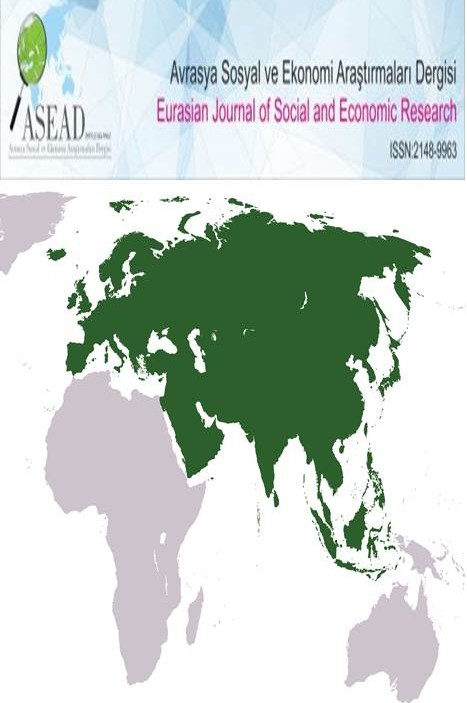İNTEGRATİF PSİKOTERAPİ KURAMI
İntegratif Psikoterapi, erken gelişim dönemindeki ve süregiden güncel yaşamdaki ilişkilere odaklanır. Bu özgün psikoterapi biçimi, 1972 yılında Dr. Richard Erskine tarafından tasarlandı ve New York ve Vancouver/Kanada’daki İntegratif Psikoterapi Enstitüsü'ndeki meslektaşlarının da katkıları ile rafine edildi. İntegratif terimi, hem duygusal, davranışsal, bilişsel, hem de fizyolojik teori ve psikoterapi yöntemlerinin sentezine ve ayrıca psikoterapinin sonucuna - kişiliğin parçalanmış veya sabitlenmiş yönlerinin danışanın içindeki bütünleşmesi ya da özümlenmesi anlamına gelir.İntegratif Psikoterapinin 8 felsefi prensibi vardır Felsefi prensiplerin özünde; saygılı olmak, terapi sürecini birlikte inşa etmek ve kişiler arası ilişkiye odaklanmak vardır. Buradaki felsefi prensipler, gelişimsel temelli ve ilişkisel odaklı psikoterapi yaklaşımını–terapistle danışan arasındaki ilişkiye dayanan ve danışanın iyileşme ve kişisel gelişimini merkeze alan bir psikoterapi yaklaşımını açıklamaktadır. Tüm ilişkiler gibi psikoterapi de bozulmaz bir bütündür; benlikle ve başkalarıyla kurulan bir dizi birbiriyle ilişkili temas tecrübesidir. İyi ele alındığında, sinerjik olarak gelişir, danışanı içsel ve dışsal olaylara dair, sürekli genişleyen bir farkındalık sarmalına sokar. Bir fikrin, hatıranın, duygunun ya da bir inanışın yeniden değerlendirilmesi, yeni bir zenginlik veya bağlantıyı ortaya çıkarır. Sorgulama, uyumlanma ve katılım, başarılı terapötik ilişkinin özünü oluşturur. Dikkatli bir sorgulama, hassas bir uyumlanma ve hakiki bir katılımla, terapist güvenilir, tutarlı ve emniyetli biri olarak tecrübe edilir. Böylesi bir ilişkiyi tecrübe eden danışanlar, benliklerinin travma ve ihmal sonucu kendilerinden ayrılmış olan parçalarını birleştirmeye başlayabilirler; bu birleştirme, danışanların kendileriyle ve başkalarıyla tam anlamıyla gerçek bir ilişki ve temas kurabilmelerinin ve dünyada yeniden bütünlüklü bir kişi olarak yer alabilmelerinin olasılığını ortaya çıkarır.
İNTEGRATİF PSİKOTERAPİ KURAMI
Integrative Psychotherapy is focused on Relationship, both in early development and current life. This unique form of psychotherapy was conceived in by Dr. Richard Erskine in 1972 and refined by the associates of the Institute for Integrative Psychotherapy in New York City and Vancouver, Canada The term integrative refers both to the full synthesis of affective, behavioral, cognitive, and physiological theory and methods of psychotherapy and also to the outcome of psychotherapy-the integration or assimilation within the client of the fragmented or fixated aspects of the personality. Integrative Psychotherapy has egith philosophical principles. These are the principles subsistent in a respectful, co-constructed, and interpersonally focused integrative psychotherapy. The philosophical principles described here are the foundation for the therapeutic approach. The approach engage in a developmentally based and relationally focused psychotherapy. Integrative psychotherapy that holds the relationship between the therapist and client as central to a process of healing and personal growth. Integrative Psychotherapy, like all relationships, is an indissoluble whole, a series of interrelated contact experiences with self and with other. Handled well, it builds synergistically, leading the client into a spiral of ever-broadening awareness of internal and external events. Each time an idea, a memory, an emotion, or a belief is revisited, some new richness or interconnection is revealed. Inquiry, attunement, and involvement comprise the essence of a successful therapeutic relationship. With careful inquiry, sensitive attunement, and authentic involvement, the therapist will be experienced as dependable, consistent, and trustworthy. Experiencing such a relationship, clients can begin to reintegrate the parts of self that were split off in response to trauma and neglect; and with reintegration comes the possibility of full contact with self and with others, of true relationship, of being in the world as a whole person again.
___
- Bartholomew K.; Horowitz L. M. (1991) Journal of Personality and Social Psychology, “Attachment Styles Among Young Adults: A Test of a Four-Category Model”, 1991, Vol. 61, No. 2, 226-244.
- Carlson, N. R. (2014) Davranışın Nörolojik Temelleri (Fizyolojik Piskoloji), Muzaffer Şahin (Çev. Ed), Ankara: Nobel
- Erskine, R. G.; Moursund, J.P; Trautmann, R.L. (1999) Beyond Empathy “A Therapy Contact in Relationship”,New York: Routledge
- Erskine, R. G.; Moursund (1988) Integratıve Psychotherapy in Action, London: Karnac Books Ltd.
- Erskine, R. G. (2015) Relational Patterns, Therapeutic Presence “Concepts and Pratice of Integrative Psychotherapy”, London: Karnac Books Ltd.
- Erskine, R. G. Integrative Psychotherapy Articles: Transference and Transactions: Critique from an Intrapsychic and Integrative Perspective1, (http://www.integrativetherapy.com/en/articles.php?İd=41)
- Erskine, R. G.; Trautmann, Rebecca L. Integrative Psychotherapy Articles: Methods of an Integrative Psychotherapy , (http://www.integrativetherapy.com/en/articles.php?İd=63
- Kring, A. M.; Jonson, S. L. (2015) Anormal Psikoloji, Muzaffer Şahin (Çev. Ed.), Ankara: Nobel.
- Maslow, A (1970) Motivation and Personalitiy (rev.ed) Newyork: Harper&Row.
- Rank, O (1993) The trauma of birth. New York: Dover.
- Rogers, C. (2003) Client Centred Therapy (New Ed.). London: Constable&Robinson.
- Steiner, C. (2014) Duygusal Okuryazarlık Muzaffer Şahin (Çev. Ed.), Ankara: Nobel.
- Steiner, C. (1974) Scripts People Live: Transactional Analysis of Life Scripts. Grove Press.
- Steward, I. and Joines, V. (2012) Ta Today “A New Introduction to Transactional Analysis” Melton Mewboray (England) and Chapel Hill (USA): Lifespace Publishing.
- Şahin, M. (2017) Davranışın Biyolojik Temelleri, Psikolojiye Giriş, Hamit Çoskun, Nilüfer Ş. Özabacı (Editörler), İstanbul: Lisans Yayıncılık
